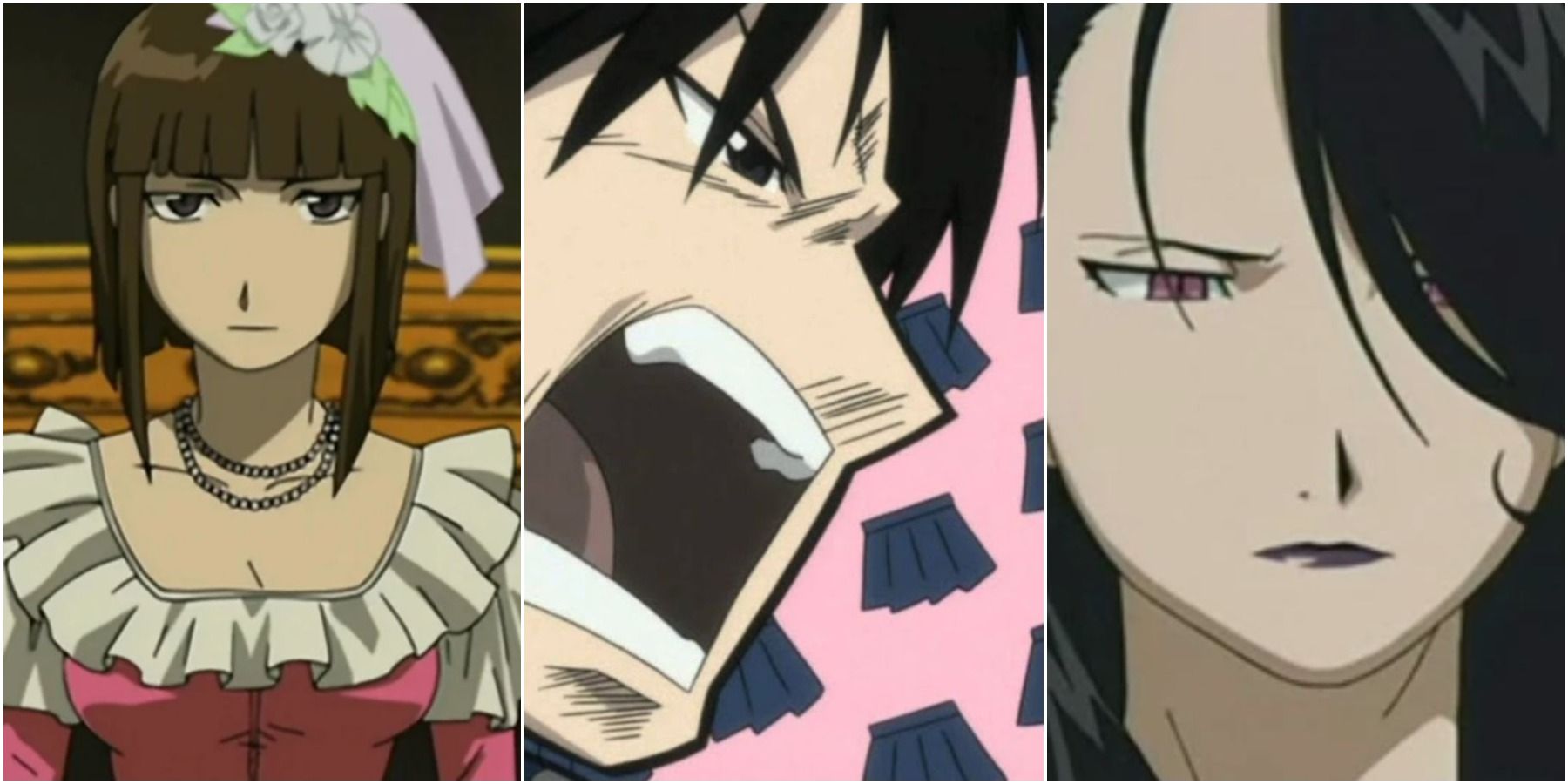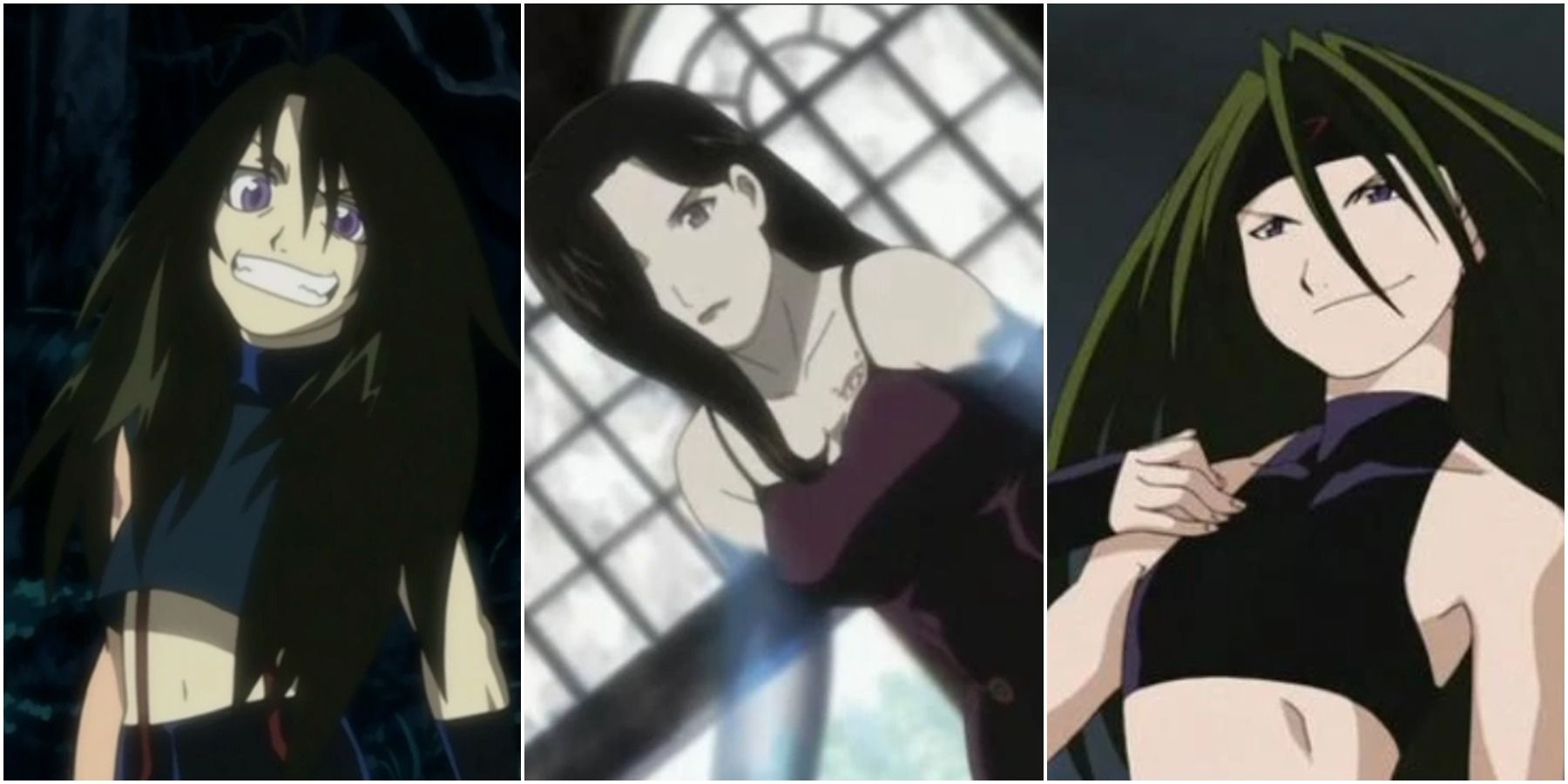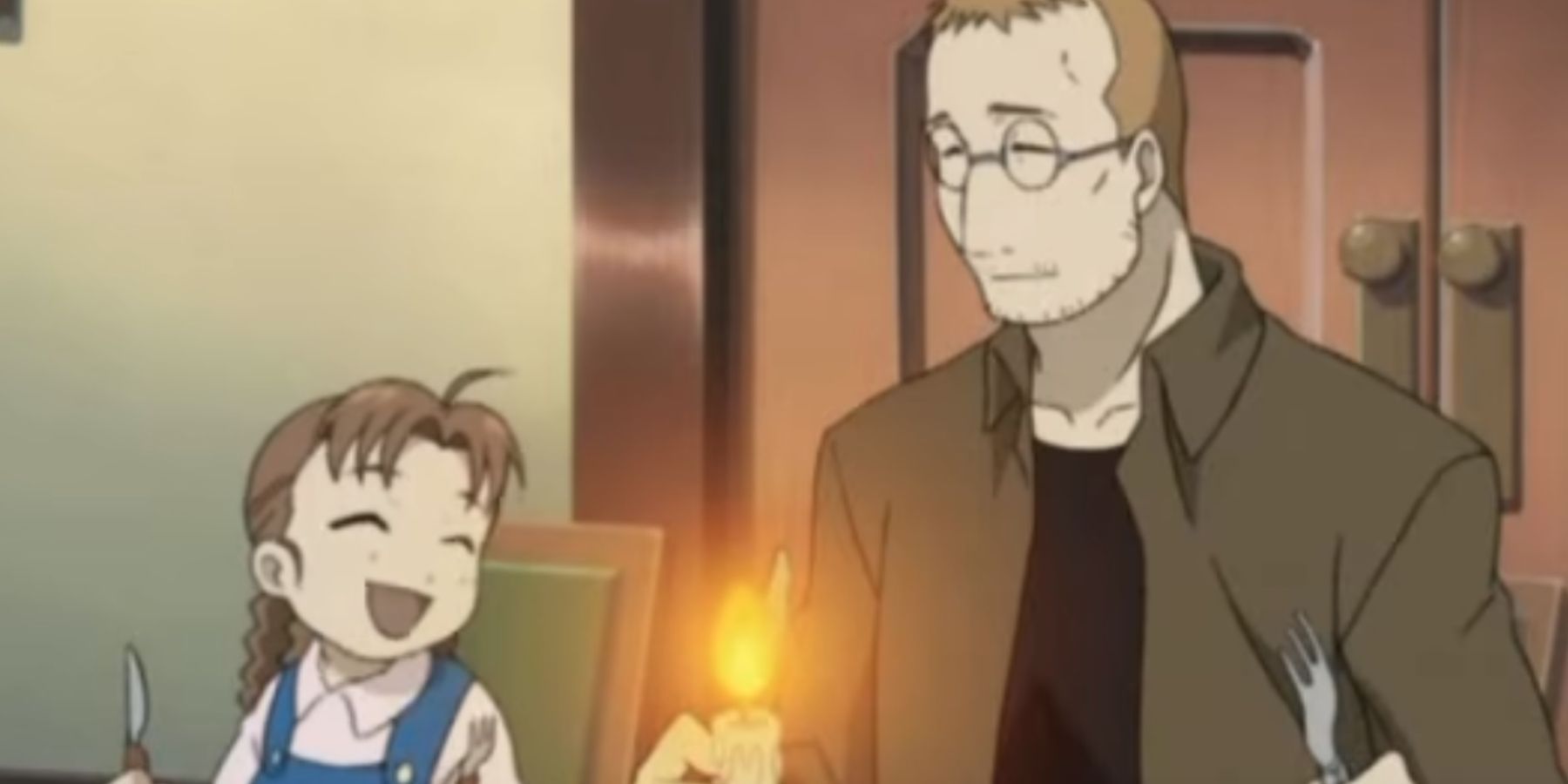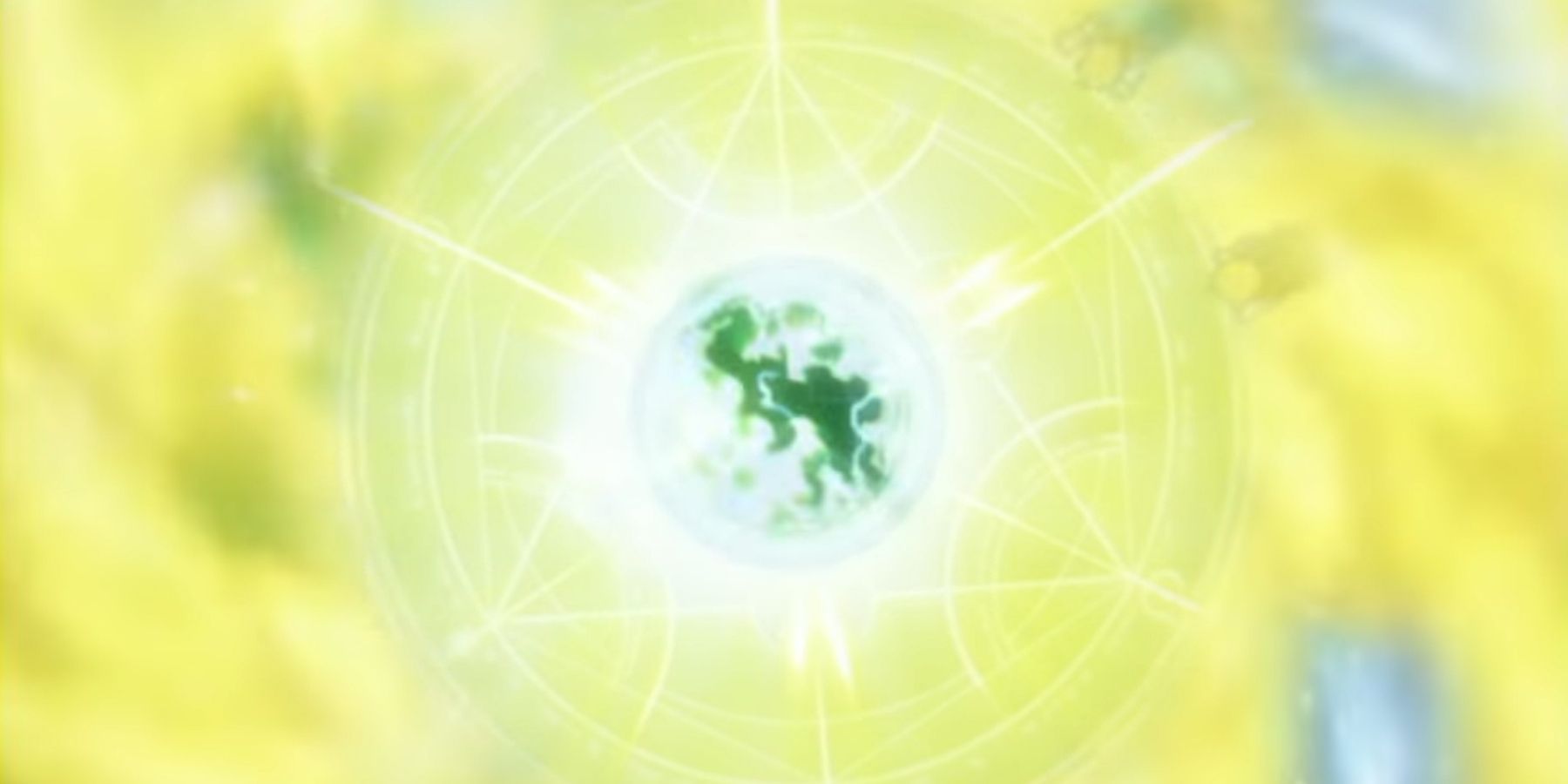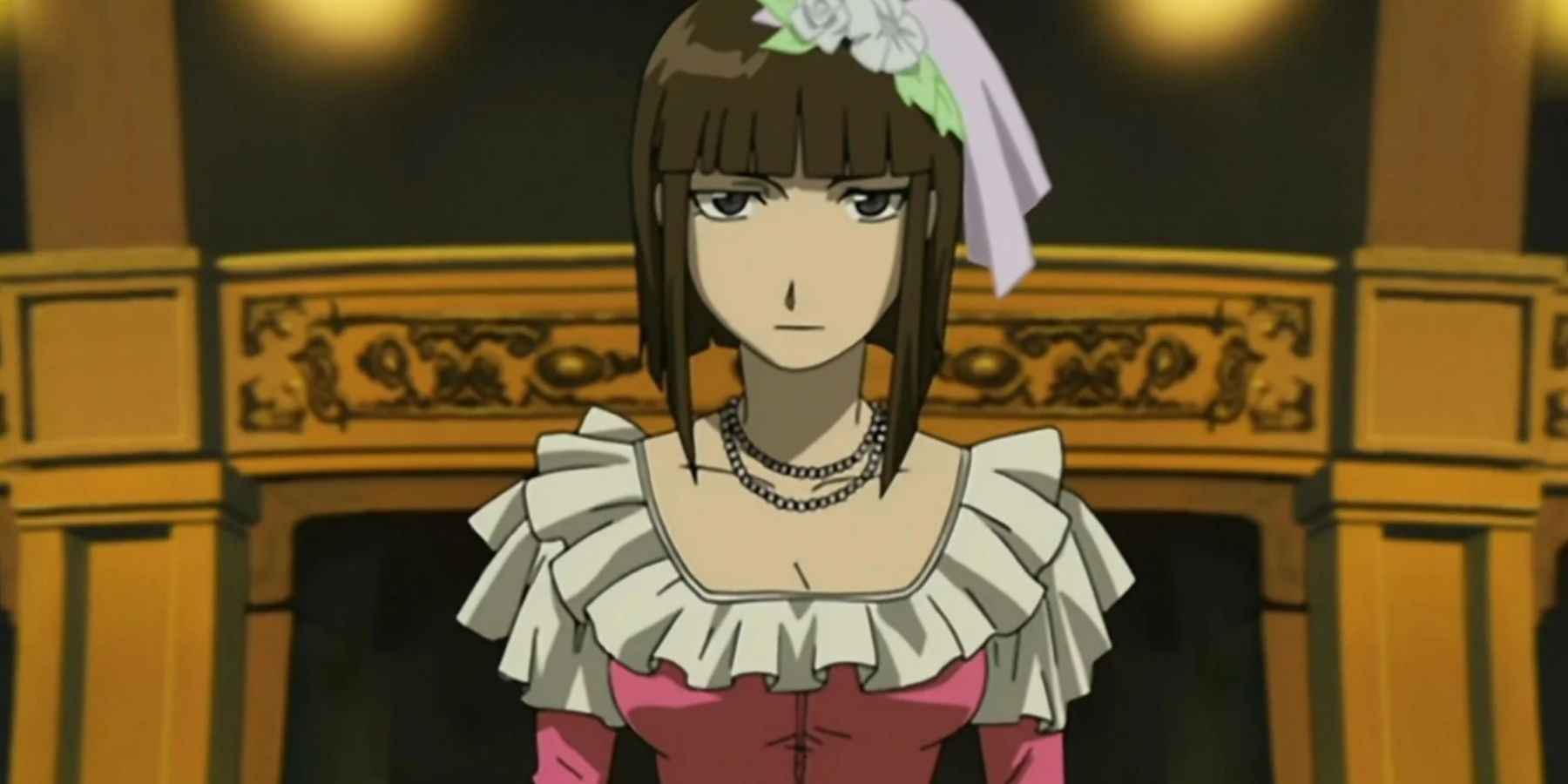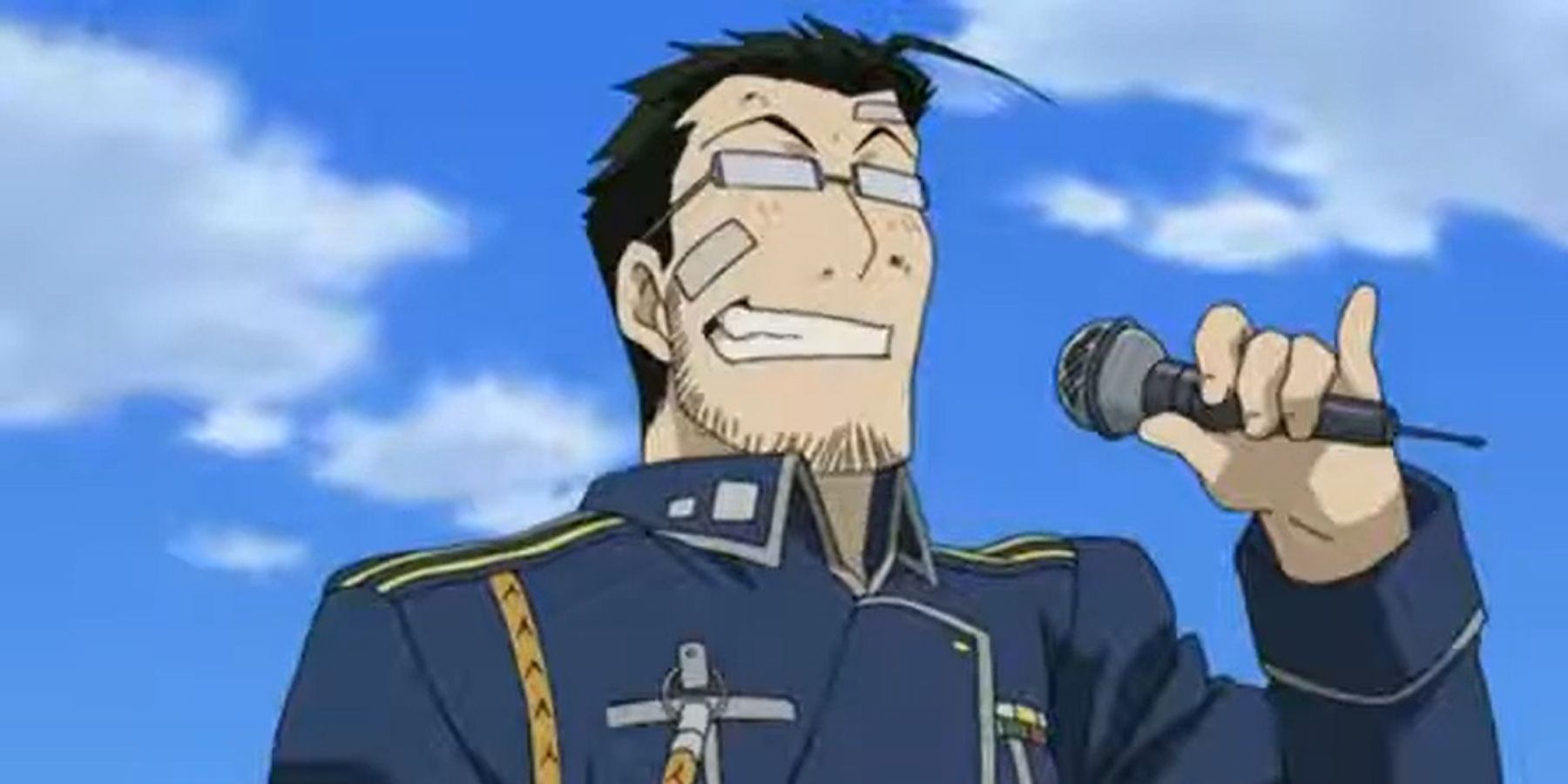When it comes to anime shows that fans should watch, Fullmetal Alchemist is usually on the list. Whether it’s the show that came out in 2003 or Fullmetal Alchemist: Brotherhood that came out in 2009, both of them are amazing for a variety of reasons. Brotherhood follows the manga and is usually what most would recommend watching since it’s canon.However, the 2003 show did do some different things that some can argue make it the better show. Just because it didn’t follow the manga all the way through (the manga was in-progress at the time and the show caught up to it) doesn’t mean fans should pass up this anime show. It’s still a great show to watch and will make fans appreciate how it added details and other things to make it stand out.
10 The Homunculi Have More Depth To Them
In Fullmetal Alchemist: Brotherhood, the Homunculi were overall evil minions out to do Father’s bidding. The only one who wanted to do their own thing and grew as a character was Greed, but the others seemed perfectly fine following orders and didn’t seem to want anything for themselves. The 2003 version gave Lust a backstory and added a little more depth to her character than Brotherhood’s Lust. Sloth in Brotherhood was more or less a mindless brute who followed orders no matter what. The 2003 version of Sloth was quiet and emotionless for the most part, she wanted to kill the Elric brothers to free herself of their connected pasts.
When comparing the versions of both groups, the Brotherhood version of the Homunculi saw themselves as superior to humans and looked down on them. Whereas with the 2003 group, they saw themselves as superior, but most of them wanted to be human again. Overall, most of the Homunculi had layers added onto their characters which made them all the more interesting to watch.
9 Slower Pace Means More Time For Character Development
The beginning of Fullmetal Alchemist: Brotherhood started off very fast-paced in its plot. This could be because the creators didn’t want to have to repeat every little thing that the 2003 version already covered. However, Fullmetal Alchemist’s slower pace meant that fans got to see Edward grow as an alchemist and got to see him at the beginning of his State Alchemist career. The relationship between the Elric brothers and Nina Tucker had more time to blossom and gave fans plenty of time for her to become a fan favorite.
It was thanks to the slower pace that fans got to know the characters better and watch them grow. In Fullmetal Alchemist: Brotherhood, while there is character development, it felt a little rushed since there were plenty of new characters that appeared and not much too much time to focus on building them up.
8 Alphonse’s Opening Line Is Underappreciated And Set The Tone
The music for both shows fit them perfectly and have become some of the best songs in anime. However, unlike Brotherhood, Alphonse spoke the following line “Humankind cannot gain anything without first giving something in return. To obtain, something of equal value must be lost. That is alchemy's first law of Equivalent Exchange. In those days, we really believed that to be the world's one, and only truth.” during episodes 2-41 before the intro song. While it might go unnoticed after a while, this line set up the tone of the overall show and added an air of suspense of what’s to come.
While he speaks this line, a frame on a desk is shown and it’s of the whole Elric family. As he continues speaking, it switches to a picture of Trisha, Edward, and Alphonse then to one of only Ed and Al. Though a child is speaking this, some fans couldn’t help but feel a chill go down their spine from his ominous tone.
7 Lust’s Character Backstory And Development Made Her More Interesting
One of the biggest differences between the two shows is the character Lust and how vastly different she is. In Fullmetal Alchemist, Lust started off the series much like her Brotherhood counterpart, but she became more than just another Homunculus. The 2003 show added a backstory to her, how she was created and gave her a connection to Scar’s past. As the series went on, Lust went from being one of the deadliest enemies to being an ally of sorts to the Elric brothers.
In Fullmetal Alchemist: Brotherhood, she is the classic femme fatale that is utterly sadistic and instigates chaos around her under the orders of Father. There is no doubt that both versions of her are deadly and interesting to watch, but 2003’s version had layers that let fans connect with her more.
6 Failed Human Transmutation Has Another Lasting Effect
Aside from having their backstories expanded, the Homunculi were actually the results of failed human transmutation attempts. The 2003’s version of Sloth took the form of Trisha Elric, Ed, and Al’s mom, and was the result of their failed attempt. Wrath took the form of what would’ve been Izumi and Sig Curtis’ son.
It made human transmutation a little more high stakes and showed the characters that there are other consequences to their actions. Because of their attempts, they unwittingly created something far more terrifying than what they originally got. The monstrosity that Ed and Al created might’ve looked creepy, but 2003’s Sloth was far more terrifying and deadly.
5 The 2003 Version’s Story Had A Darker Undertone
Despite not following the manga’s story, the 2003 version had an overall darker undertone. When comparing the two, Fullmetal Alchemist: Brotherhood does have the typical shonen air about it and had its dark moments, but the 2003’s version tone was pretty bleak. The tone of the show is a little similar to shows like Attack on Titan or Death Note. Episode 8 in Fullmetal Alchemist shows Barry the Chopper when he was human and showed that he is far more disturbing and demented than his Brotherhood counterpart, who is more dark-humored and a little saner.
Even filler episodes had dark moments such as Episode 35 where Lust was shown helping a young man named Lujon and hoping his desperation to save his fiancee Lydia would make him create a Philosopher’s Stone by using the lives of the villagers. Overall, the 2003 version was not afraid to show disturbing bits.
4 Trisha Elric’s Death Packed More Of A Punch
Trisha Elric’s death devastated her sons and is what prompted them to try and bring her back to life by Human Transmutation. In Fullmetal Alchemist, fans got to see Trish in action as a mother and raising her two sons whereas she was already dead in Brotherhood. When she passed away in the 2003 show, it packed more of an emotional punch and fans got to see Ed and Al set off to find a way to bring her back.
After attempting to bring her back, the Homunculus Sloth is born and this divides the brothers on what to do when they finally meet her. Ed doesn’t see her as their mother, but Al believes deep down she is. It’s one of the few times the two of them disagree with each other, but it was sad to see them go up against a warped version of Trisha.
3 Dante Is Actually A Well-Written Villain
There has been a long debate over which main antagonist is better: Dante from Fullmetal Alchemist or Father from Fullmetal Alchemist: Brotherhood. Dante does tend to get the short stick since she appeared pretty late in the series and some believe her character to be bland. However, Dante has quite an intricate story more or less like Father. Father perfectly fit the villain-wanting-to-rule-the-world trope, but he was fantastically written and stands out as a great villain. But even with his backstory, Father seems like a typical shonen villain.
On the other hand, Dante fits the villain-wanting-to-be-immortal trope, but she wanted to be immortal for her own selfish reasons. However, she is shown to have truly cared for very few people in her long life such as Pride/King Bradley and Izumi Curtis, who was her student. Plus, her love for Hohenheim bordered on obsession to the point that she targeted Ed and Al to bring him out of hiding.
2 It Had Fewer Comedic Moments, But They’re More Memorable
There is no doubt that both shows are perfect when blending together comedy, action, and drama, but Fullmetal Alchemist: Brotherhood seems to rely on comedy a little too much at certain times. Fullmetal Alchemist seems to have been able to spread out the comedic moments perfectly and the timing just felt right just about every time. Even the filler episodes seem to blend into the series perfectly and had some of the funniest moments in both shows.
Fans know about Roy’s infamous “I LOVE DOGS!” speech. Plus, his grand plan for change when he becomes Fuhrer is “All female officers will be required to wear tiny mini-skirts!” Of course, he has other plans, but this is the one that stood out the most.
1 Fans Got To Know Maes Hughes Better
Every Fullmetall Alchemist fan knows about Maes Hughes, the lovable State Military officer that was like an uncle-figure to the Elric brothers, loyal and supportive friend of Roy Mustang, proud husband to Gracia, and even prouder father to Elicia. Despite working for the State, which is notorious for its secrets, Hughes was an honest and good man who truly wanted the best for his family and friends. His role was expanded in the 2003 version and fans got to connect with him before he became a father and watched him become one. It was quite refreshing to see a character become a parent and have a relatively stable life to enjoy the perks.
Sadly, Maes doesn’t get to enjoy fatherhood for too long and is killed by Envy, who took the form of his wife Gracia, in both versions. The 2003 version just hits a little harder because fans got to see Hughes’ character develop. Plus, seeing an apparition of him waving to Ed while he’s on the train made fans bawl even harder because Ed and the others didn’t know he was dead.

